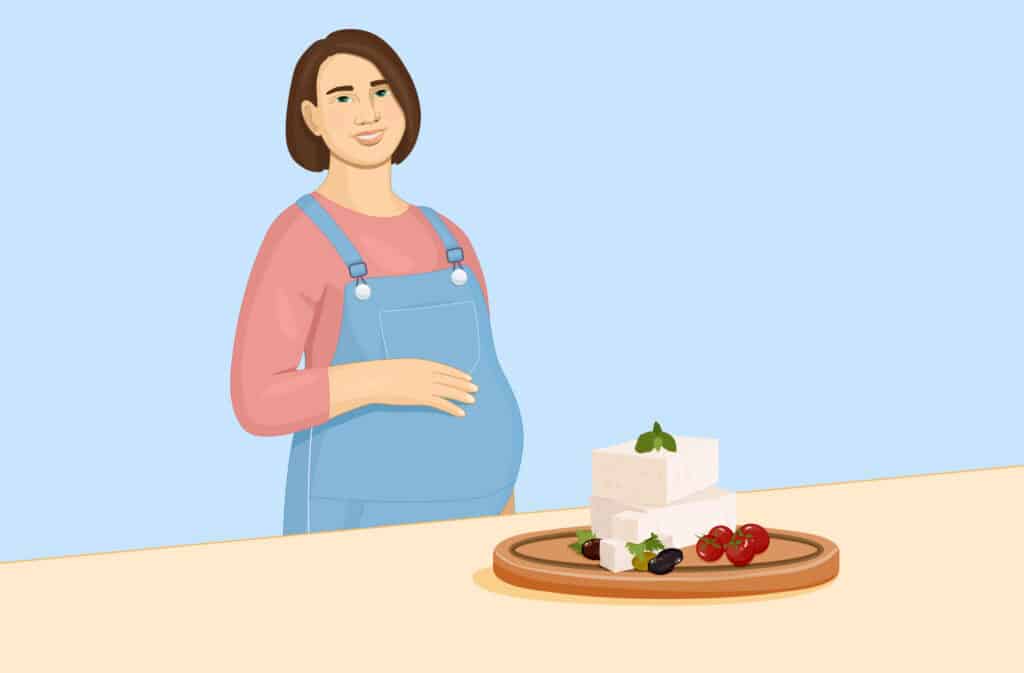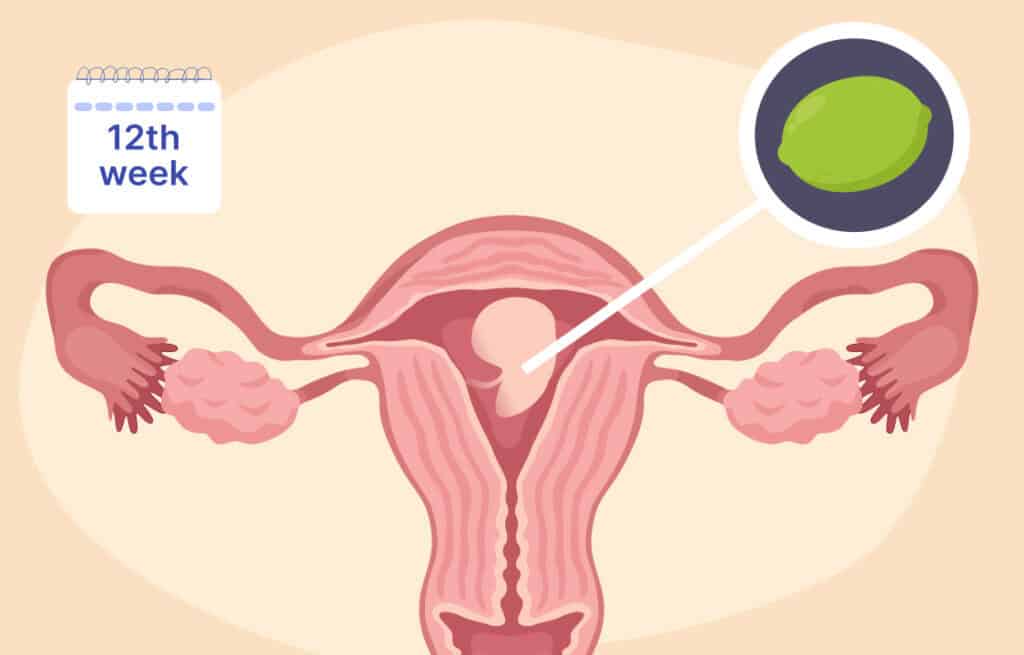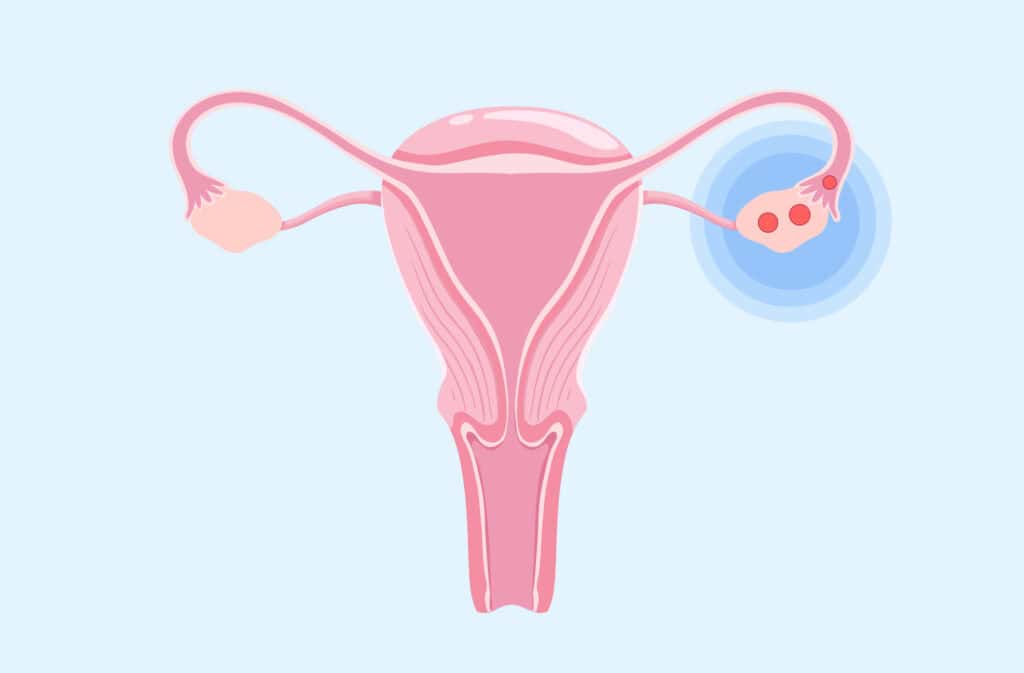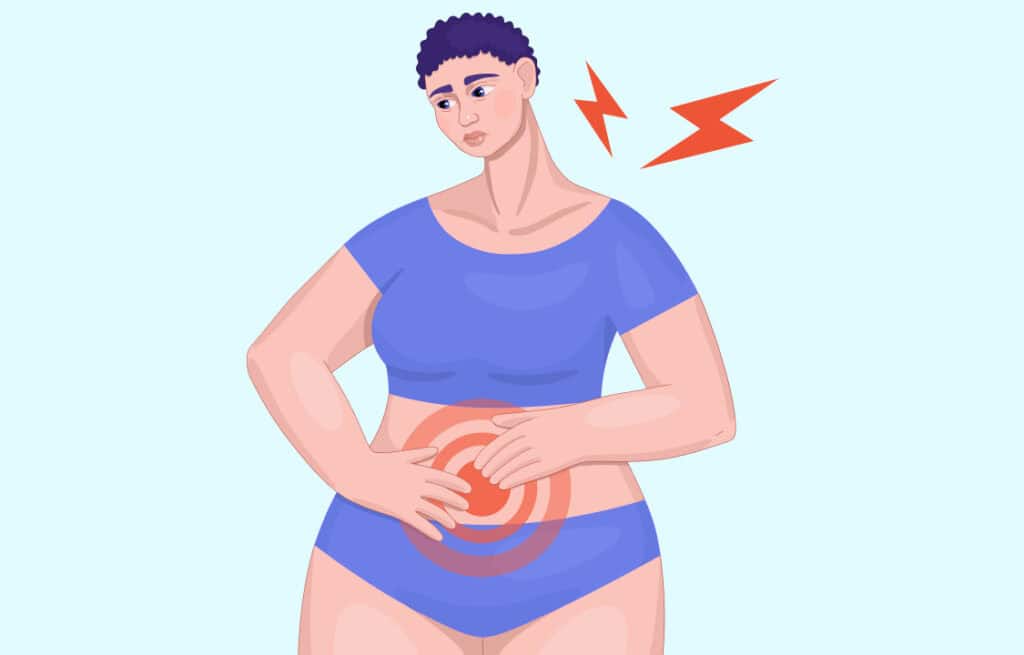Femia > Health Library > Pregnancy > Pregnancy health > Can you eat feta cheese while pregnant? Safety tips and what to avoid
Can you eat feta cheese while pregnant? Safety tips and what to avoid

- Updated Feb 10, 2025
- Published
CRAFTED BY HUMAN
Crafted by human At Femia, we provide accurate and up-to-date information at every stage of your journey, from trying to conceive, pregnancy and postnatal support. All content is created by a real person based on in-depth research and own professional experience. Femia ensures that you will receive expert advice, strict accuracy and a personalized approach from our authors/medical experts. Learn more about our editorial policy.
FACT CHECKED
Fact checked At Femia Health, we maintain the highest standards of editorial excellence in delivering content focused on helping you conceive, guiding you through pregnancy, and supporting you postpartum. Explore our content review principles to learn how we ensure the accuracy and quality of our health and lifestyle tips for every stage of your journey.
Yes, pregnant women can eat feta cheese, but it must be made from pasteurized milk. Pasteurized feta is safe and nutritious, but unpasteurized feta should be avoided due to the risk of harmful bacteria like Listeria.
Cheese is a common concern for pregnant women, especially when it comes to soft cheeses like feta. If you’re asking, can you eat feta cheese while pregnant, the answer depends on how it’s made. Feta is a soft, crumbly cheese, and while it can be a delicious addition to salads and dishes, not all types of feta are safe during pregnancy. This article will help you understand when feta is safe to eat and what to look for to avoid potential risks.
Femia offers a personalized meal plan according to your pregnancy journey
Is feta cheese safe during pregnancy?
Feta cheese is safe during pregnancy if it’s made from pasteurized milk. Pasteurization is a process that heats milk to a specific temperature to kill harmful bacteria, including Listeria, which can be dangerous for pregnant women and their babies.
Unpasteurized feta cheese, on the other hand, poses a risk of foodborne illnesses, especially Listeriosis. Listeria is a bacteria that can thrive in unpasteurized products and cause serious complications during pregnancy, such as miscarriage, stillbirth, or preterm labor. For this reason, it’s essential to check labels and ensure any feta you consume is pasteurized.
👉Find out more: Can I eat cottage cheese while pregnant? Safety and benefits
Can pregnant women eat feta cheese?
Yes, pregnant women can enjoy feta cheese, but only if it’s pasteurized. The key is to choose feta made from pasteurized milk, which significantly reduces the risk of harmful bacteria. When buying feta, check the packaging to confirm it’s pasteurized. If you’re eating out, don’t hesitate to ask if the feta is made from pasteurized milk.
Pasteurized feta cheese provides valuable nutrients that support a healthy pregnancy, including:
- Calcium: Supports the development of the baby’s bones and teeth and helps maintain strong bones for the mother.
- Protein: Important for fetal growth and maternal tissue repair.
- Vitamins and minerals: Feta contains small amounts of essential nutrients like vitamin B12, zinc, and phosphorus, all of which contribute to a balanced pregnancy diet.
It can be safely added to various dishes, such as salads, omelets, or sandwiches, as long as the cheese is pasteurized and stored properly.
Can I eat feta cheese while pregnant? What to look for
When choosing feta cheese during pregnancy, it’s crucial to ensure it’s made from pasteurized milk. Here are a few tips to safely enjoy feta:
- Check the label: Look for the word “pasteurized” on the packaging. If it doesn’t specify, it’s best to avoid it.
- Ask when dining out: When ordering a dish with feta at a restaurant, ask if the cheese is pasteurized.
- Store properly: Once opened, store pasteurized feta cheese in the refrigerator and consume it within a few days to minimize the risk of bacterial contamination.
👉Find out more: Can you eat goat cheese while pregnant? Safety tips and pasteurized options
Can you have feta cheese while pregnant? Understanding the risks
Unpasteurized feta cheese carries the risk of Listeria contamination, which can lead to Listeriosis, a serious infection for pregnant women. This bacteria thrives in unpasteurized dairy products and can cause symptoms such as fever, muscle aches, and gastrointestinal issues. The risks of Listeriosis during pregnancy can be severe, including miscarriage, stillbirth, or serious illness in newborns.
To avoid these risks, it’s essential to consume only pasteurized feta cheese. The pasteurization process eliminates harmful bacteria, making the cheese safe to eat during pregnancy.
Femia offers a personalized meal plan according to your pregnancy journey
Questions from the Femia community
Can I eat feta cheese in a salad while pregnant?
Yes, you can eat feta cheese in a salad as long as it’s made from pasteurized milk. Be cautious when eating out, and always ask if the feta is pasteurized to ensure its safety.
Can I eat feta cheese on pizza while pregnant?
Yes, if the feta cheese is pasteurized, it’s safe to eat on pizza or any other dish. Cooking feta cheese can further reduce the risk of bacteria, but pasteurization is the key to safety.
Is goat feta cheese safe during pregnancy?
Goat feta cheese can be safe during pregnancy as long as it is made from pasteurized milk. Always check the label to confirm it’s pasteurized, as unpasteurized goat cheese carries the same risks as unpasteurized cow's milk feta.
Can I eat feta cheese from a Greek restaurant while pregnant?
It depends on whether the feta cheese is pasteurized. At Greek restaurants, feta is a common ingredient in many dishes, so always ask if the cheese they use is made from pasteurized milk before consuming it.
Can I eat cooked feta cheese while pregnant?
Yes, cooking feta cheese can reduce the risk of bacteria, but it’s still essential to use pasteurized feta. Even if the cheese is cooked, starting with pasteurized feta is the safest option.
The bottom line
Feta cheese can be a healthy and delicious part of your pregnancy diet if it’s made from pasteurized milk. Pasteurized feta is safe to eat and provides important nutrients like calcium and protein. However, unpasteurized feta poses a risk of Listeriosis, a harmful bacterial infection, so it should be avoided. Always check labels and ask questions when eating out to ensure the feta cheese you consume is safe during pregnancy.
References
- American Pregnancy Association. “Soft Cheeses During Pregnancy.” APA, https://americanpregnancy.org/healthy-pregnancy/nutrition/soft-cheeses-during-pregnancy/.
- “Can You Eat Feta Cheese While Pregnant?” Parents, https://www.parents.com/can-you-eat-feta-cheese-while-pregnant-8671657.
- U.S. Food and Drug Administration. “Listeria (Listeriosis).” FDA, https://www.fda.gov/food/foodborne-pathogens/listeria-listeriosis.

At 12 weeks pregnant, your baby’s organs are forming, and a bump may appear. Explore fetal development, symptoms, and what to expect in week 12.

Discover if it’s possible to ovulate twice in a month with hyperovulation. Learn about 6 key symptoms and causes of hyperovulation. Expert insights from Femia.

Does stomach pain after sex mean you are pregnant? Learn if it’s a sign of pregnancy or other health concerns. Understand the causes, symptoms, and when to seek medical advice.

